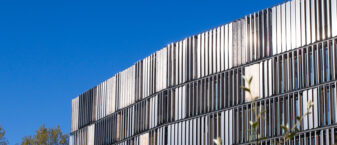
Paris School of Economics
Address: 48 boulevard jourdan 75014 Paris
Location: Paris
For: professionals, researchers and graduate students
Duration: 1 week
Dates: June 23 to June 27, 2025
Applications: From January 15 to May 19, 2025
For long, experiments have been seen as a specific domain within economics (“experimental economics”). The experimental method is now widely considered as a tool among others in the typical economist’s toolbox. Its use has shed light on many areas, on the theoretical side (decision theory, game theory, markets) as on the more applied and descriptive ones (policy, development, labor econ., IO, health econ., etc.). It has led to the blossoming of “behavioral economics”, but its general relevance goes much deeper than that.
The purpose of this program is to provide young researchers with the methodological skills required to pursue experiments in their own research.
The objective of the Experimental Economics program is to offer young scholars a crash course in empirical methods aimed at understanding economic behavior: how to design, implement and analyze an experiment to answer a research question. The summer school is methodological in nature, although typical results from behavioral economics will be introduced as examples and illustrations on how protocols are designed to overcome observation/measurement/identification issues. Participants will be trained with the aim of being able to soundly rely on experiments in their future research projects.
The program is divided in four parts: a series of general lectures on experimental methodology, a series of specialized classes on specific methodological topics and workshop sessions where participants present, discuss and refine their experimental projects, with feedback from the school’s speakers.
After completing the summer program, participants will specifically be able to work on:
3
ECTS credit which PSE validates
316
participants in all programs in 2023
70
nationalities
Our summer school is aimed at graduate students, PhD students, young scholars and young professionals.
You will need a solid background in economics/microeconomics, basic knowledge of econometrics and statistics and a working command of English.
To be sure you make the most of your stay in Paris, PSE offers social events, such as a boat tour. It’s a wonderful way to balance your everyday studies with the chance to visit the must-sees of the City of Light.
For centuries, Paris has created and recreated itself as one of the most beautiful and charming cities in the world, thanks to its architecture, its restaurants and cafes, and its river banks. It is unique: contemporary without having sacrificed its classical features.
I got so many research ideas and inputs that I was able to implement in my work as well as in the workshop where I had to present a paper.
Gauri Sreekumar
If you can’t find the answers to your questions in the FAQ, please contact the Administrative Office.
When this map is selected with the keyboard, you can use the + and − keys of the keyboard to perform a zoom in or out, as well as the up, down, right et left keys of the keyboard to move the map.

Address: 48 boulevard jourdan 75014 Paris
This program is sponsored by PSE’s Opening Economics Chair.
The Opening Economics Chair allows economists to respond in creative and effective ways to the major questions of our times, by integrating two observations: that current challenges, complex and multifaceted as they are, demand an approach that transcends disciplinary boundaries, and that economics research must be renewed by advances made in other related disciplines.